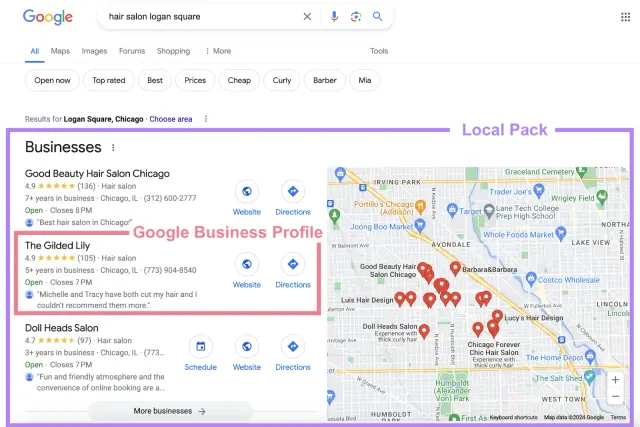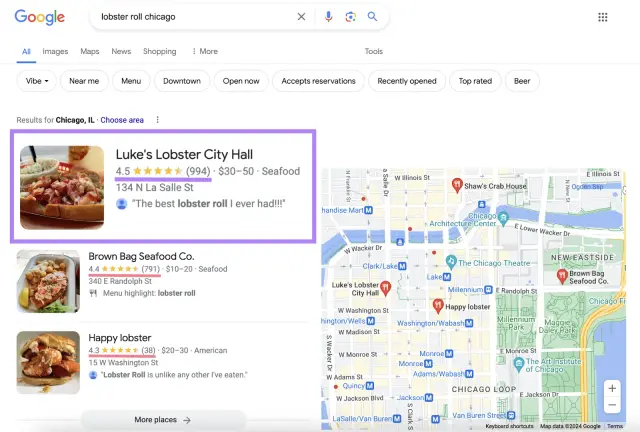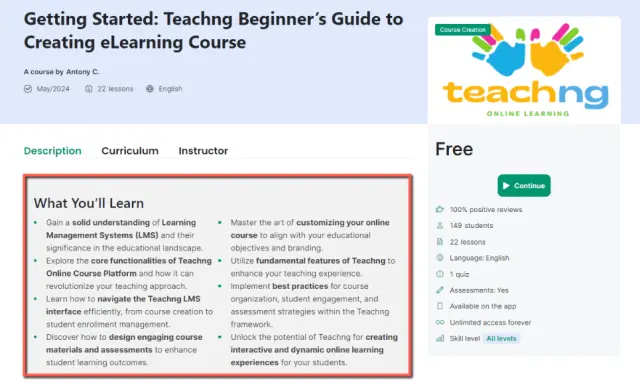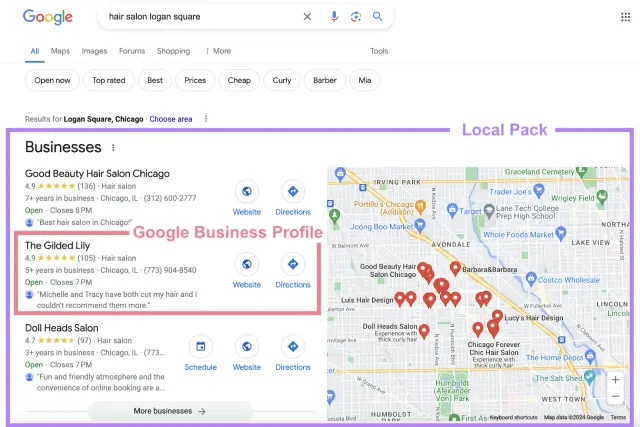By Gaurav Belani
Many eLearning entrepreneurs and digital educators build from a strong local base and then wonder how to take their courses to a global audience. This is a common problem: to reach the learner beyond a familiar market after an initial local market.
In light of several years of experience working with eLearning clients, this article shares the more practical tips and strategies that educators may utilize to grow their platform, attracting worldwide learners.
Course creators often notice that most of their students are coming from former clients who enjoyed the training experience. That is a very good foundation, but if you wish to develop beyond it, you will need something bigger- this is where some SEO can help.
This piece simplifies the complex layers of search engine optimization for eLearning. If you’re a solo freelancer teaching coding fundamentals or a small agency delivering specialized training, the right SEO moves can get you noticed, bring in more learners, and increase profits.
All the steps shared here come from working with real clients and offer clear, actionable advice for anyone who wants to scale beyond their local market.
Understanding the Three Tiers of SEO for eLearning Business
Before scaling eLearning businesses, it is crucial to set the foundation for SEO. SEO is like a ladder, where varieties of queries are placed at different levels.
At the bottom rung rests the local audience- learners within immediate proximity or just within the city, who are more likely to trust the course creator because of familiarity.
A little jumping up, and the audience group expands to include learners across the country. This much larger group comes with added uncertainty: More effort needs to be put into convincing them.
At the very top of the ladder are students from across the globe. Building credibility within this huge pool of audience requires a well-planned strategy that begins with SEO visibility.
Each of these stages on the ladder fulfills a different purpose, and it is entirely unnecessary to do acrobatics to reach the top rung right away. Scaling an eLearning business is an iterative process that happens from the ground up.
Local SEO: Start Where You Are
After understanding these basics, it is understood that the starting objective is to scale the eLearning business. Setting up local SEO is therefore the starting block of scaling the eLearning business. Course creators need to first earn the trust of the communities that already anchor on their local population before aiming further away.
For example, an eLearning provider offering language classes in Mumbai or SAT prep in Austin should be winning when someone searches, “best online math tutor near me.”
This type of recognition leads not only to enrollments but also to a full supply of reviews and testimonials, which are crucial for securing future clients.
Key actions for local SEO success include:
- Google Business Profile: Finish and keep the business profile updated regularly with contact information, operating hours, and photos of the team or the virtual classroom. For instance, uploading pictures of the classrooms and sharing news can place the business in Google’s Local Packs and on Google Maps, giving visibility to potential students who are searching nearby.
- Consistent Information: Ensure that the business name, address, and phone number (NAP) are consistent on all websites and directories. Such consistency helps search engines verify that the business is legitimate and enhances ranking.
- Local Landing Pages: Create landing pages with the city or region served, such as “Online Coding Classes in Bengaluru.” These pages should be SEO optimized with local keywords so that search engines index and present them to users in the area.
- Collect Reviews: Encourage satisfied students to write reviews on Google and relevant platforms. Positive reviews foster confidence in the customer and sell well. For instance, 5-star reviews coming in steadily can help a tutoring business rank higher in local search results.
- Get Local: Attend, sponsor local events, or partner with local schools. These actions will gain strong backlink possibilities and further set the premise for a business to become a trusted, local resource.

Source
By focusing on these local SEO strategies, eLearning businesses will be able to develop a sturdy presence in their locality, gain affiliates through genuine reviews, and set the foundation for later growth in other areas.
Start with these initial steps, and you will be halfway through it!
National SEO: Taking It Countrywide
After an eLearning business has established a good local standing, the next stage is National SEO to enlarge its scope. This means moving away from location-specific searches such as “online coding class Boston” to more generic terms like “best online coding courses in the USA.”
National SEO is critical to cementing brand authority, drawing valuable students from across the country, and beating competitors in search listings.
Key steps for effective National SEO:
- Keyword Research: Find out what learners across the nation are searching for in your niche. Use SEO tools to target keywords with the largest search volume but a low keyword difficulty. For example, instead of “SAT prep in Austin,” use “best SAT prep courses online in the USA.” This way, your platform will rank higher than competitors in the national result listings.
- Content Creation: Develop informative blog articles and resources to solve the queries and address the concerns of the national audience. For instance, create elaborate guides on topics like “How to Choose the Best Online Coding Course in the USA” or answer some of the frequently asked questions that appear on Google’s featured snippets. High-quality content, which is worthy of reading, increases credibility and gives students reasons to check out the courses that you provide.
- Backlinks: Obtain mentions, references, and backlinks from well-known national educational blogs, news portals, or organizations within your industry with a high domain rating. Having been written up in a leading editorial or referenced in a national education report, your site will experience a great leap in authority and ranking.
- Site Architecture: Keep the site navigation easy to manage as you increase the number of courses and resources. The well-ordered and simple site structure assures an enhanced user experience and makes it possible for search engines to crawl and index the content efficiently. Examples include grouping courses by categories and having simple menus to enable speedy location-finding by learners.

Source
The realization of these strategies can uplift an eLearning platform to national visibility, hence attracting a wider audience, and establishing the foundation for a future international extension.
Global SEO: Reaching Learners Worldwide
Once the eLearning business is ready for international expansion, the scenario becomes edgy as the platform competes for the attention of learners around the world. It is time to cross national boundaries and contemplate strategies that could make the eLearning platform sustainable in the global market, which might cross $900 billion by 2032, thus pushing along digital learning, adoption, and technological innovation.
To release a deep and lasting impact on the world, the approach must be strategic on the online front. Credibility and goodwill could be created using clear and helpful marketing, which helps increase enrollments and engagement.
Key activities to get an eLearning business ready for a global state:
- Market Research: Develop detailed buyer personas to learn about the areas or countries where demand for courses is higher. For instance, a platform that offers coding bootcamps might identify secondary interest in Southeast Asia and Eastern Europe, where digital skills are much in demand. With the help of market research tools and local surveys, these opportunities could be pinpointed.
- Multilingual Content: The website and all course content must remain in many sister languages to serve the large crowd outside the borders. For example, both Coursera and Udemy support course navigation and course-related support in numerous primary languages, making it considerably easier for non-English-speaking students to enroll in the course and actively participate.
- Technical SEO: Implement hreflang tags so search engines display the version of the language it deems best for users in different regions. Make sure pages load rapidly with strong core web vitals, as learners from various countries will face an assortment of Internet speeds and device preferences. For example, compressing images and using a global CDN can improve site performance for users in Asia, Europe, and North America6.
- Local Backlinks: Build credibility by earning backlinks from reputable domain names that are region-specific. Collaborating with local educational blogs, universities, or industry organizations helps boost authority within target markets. For example, getting featured in a big-name education portal in Brazil or Germany would not only bring back traffic but also trust.
- Webinars and Engagement in Communities: Host webinars according to time zones and cultural tastes. Use social media polls to solicit feedback on the most inspiring topics for the international audience. For example, the platform could hold a webinar on “AI in Education” for European learners and on “Remote Learning Strategies” for Southeast Asian educators, according to the regional demand.
As the eLearning industry continues to develop with trends like adaptive learning, microlearning, and somewhat increased mobile access, platforms that will prioritize accessibility, localization, and engagement will find their significant advantage worldwide.
Foundational SEO Elements for eLearning Business
Whether you’re a beginner in eLearning course creation or have some experience in the field, understanding SEO is essential. Without a solid grasp of SEO basics, enhancing your course’s visibility will be a gamble.
If you’re still evaluating tools to deliver your content efficiently, consider browsing our E-Learning Software category for top-rated platforms that support course creation, student engagement, and SEO integration.
Here are some important considerations for optimizing your eLearning business for SEO:
- Content Quality: Start by providing valuable content to your learners. Curate blog posts, case studies, and testimonials on your eLearning website to assist your audience. This approach will help build trust and loyalty, encouraging learners to eventually enroll in your comprehensive courses.
- Mobile-Friendly Design: With the increase in mobile usage, more students are learning on their mobile devices. Approximately 94% of Gen Z is estimated to be learning through mobile platforms. If your courses aren’t optimized for mobile, you could miss out on a significant number of potential learners.
- Fast Loading Times: Nobody enjoys waiting for a webpage or course video to load, especially when it’s for an online course. Slow loading times can drive learners away faster than you might expect.
- Clear Structure: Organize your site so that both users and search engines can easily find what they need. Clearly define course objectives and outline milestones to create a smooth learning experience. Ensure your course is well-structured with clearly defined topics and subtopics.

Source
Remember, eLearning content creation and development are crucial to your success. If you find all these SEO technicalities overwhelming and need assistance on your SEO journey, consider reaching out to a trusted eLearning SEO service for guidance.
Scaling from Local to Global (How AI is Revolutionizing the Process)
With the rise of AI, optimizing websites and courses for SEO has become significantly easier. AI not only helps generate content ideas but is also transforming eLearning SEO by assisting with everything from keyword research to performance analysis. AI is playing a crucial role in revolutionizing business growth.
AI-powered tools can help you:
- Find New Keywords: These tools can identify keywords based on search intent, difficulty, and relevance. Instead of relying on a manual process, leverage AI tools to streamline your keyword research.
- Generate Content Ideas: Once you’ve identified suitable keywords, you can use AI to generate content ideas. The eLearning content opportunity finder (by BizBlaze) is a tool designed to simplify this process.
- Fix Technical Issues: Additionally, AI can help you resolve technical SEO issues. By using structured prompts, you can guide AI to provide solutions for any technical issues identified by an AI technical health checker tool.
- Personalize Learning: Make eLearning feel tailored to each individual. Incorporate interactive elements with the help of AI to enhance the personalized learning experience.
An AI-powered eLearning SEO company can assist you with your SEO challenges, utilizing advanced insights to help you surpass your competitors. Consider reaching out to an expert to streamline your SEO journey.
Measuring Success
How do you know your SEO is working? Use tools like Ahrefs, Semrush, and Google Analytics to keep an eye on these metrics:
- Keyword Rankings: Are you surpassing your competitors in search results?
- Organic Traffic: Are more people finding your site through Google?
- Student Signups: Are your courses filling up?
- Engagement: Are students spending time on your site and coming back for more?

Source
Set clear goals, track your progress, and celebrate every win-big or small.
Wrapping Up
This blog emphasizes a comprehensive overview of transitioning from local to global SEO for eLearning businesses.
The following sections have been covered:
- Three tiers for eLearning businesses.
- Steps to enhance local, national, and global SEO.
- How AI can be utilized to streamline the process.
While this blog covers most of the essential points, there is still much more to explore on this topic.
If you’re eager to learn more about best practices and techniques for eLearning SEO, please visit our blogs and utilize our free AI tools to kickstart your SEO optimization journey today.
Are you ready to transition from being a local legend to a global educator? Let’s make it happen!
What does our team do?
At Social Hire, we don’t just do social.
Is it important to you to increase the digital footprint of your business by utilising digital marketing, but can’t work out how to begin?With the professional understanding of our digital experts working in your business, you can begin to see interaction, brand loyalty and enquiries get better without having to take your team out to spend time on ineffective marketing strategies, or spend money on a internal marketing manager with a view to get results that may not deliver!
The social media marketers in our company are the best in the business at helping our partners enhance their online marketing. We outline and implement cutting-edge social media marketing plans that help our customers realise their organisational objectives and further their social media presence. Our experienced team of digital experts do your social media strategy creation and management in an uncomplicated monthly plan that is cost-effective and is genuinely useful, whatever results you demand from your online marketing management.
Our specialists are a team that assists our partners improve their presence online by producing online marketing on a regular basis. Our service is transparent and economical, which ensures that you get a great service and results that make a difference when you use our services.
You might like these blog posts Perfect Millennial Startup Office Design, 5 Best Web Builder Platforms for Small Business, 5 Free Ways to Become a Stellar HR Pro, and How to Produce More Leads With a Solid Content Marketing Strategy.
Back to Small Business blogs
